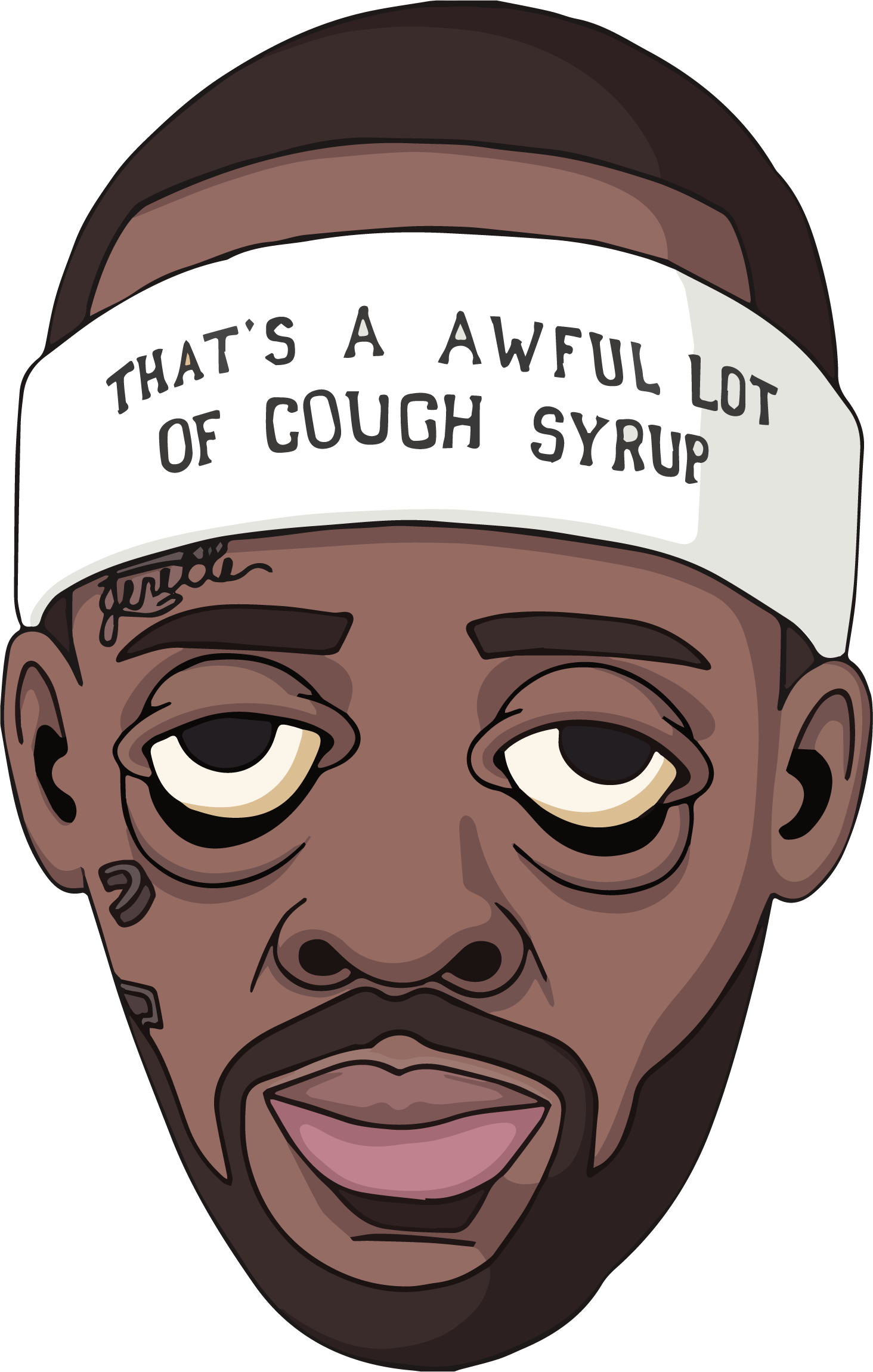When it comes to cough syrup, moderation is key. In recent years, the misuse and overconsumption of cough syrup have raised alarms among health professionals and parents alike. The phrase "that's a awful lot of cough syrup" has become a haunting reminder of the dangers that lurk in seemingly harmless bottles. With a blend of codeine and promethazine, these syrups can offer relief for coughs and colds, but the potential for addiction and overdose is a serious concern. This article delves into the implications of using cough syrup excessively, the signs of addiction, and the importance of responsible usage.
Understanding the balance between treating a cough and falling into a pattern of abuse is crucial. Many individuals may not realize how easy it is to slip into a dangerous cycle. That's a awful lot of cough syrup can sometimes be the precursor to a more significant health issue. As we explore this topic, we will address the questions surrounding its use, the profiles of those at risk, and the steps to take if you or someone you know is struggling.
In this comprehensive guide, we will cover everything from the ingredients that make up cough syrup to its effects on the body, as well as the signs of misuse. Join us as we unpack the complexities and realities of this common cold remedy, shedding light on how to navigate its usage safely and effectively.
What is Cough Syrup Made Of?
Cough syrup typically contains a combination of active ingredients designed to relieve symptoms. The most common components include:
- Codeine: A narcotic that suppresses coughing.
- Promethazine: An antihistamine that helps alleviate allergy symptoms.
- Dextromethorphan: A cough suppressant that is non-narcotic.
- Guaifenesin: An expectorant that helps clear mucus from the airways.
What Are the Risks of Excessive Use of Cough Syrup?
Excessive consumption of cough syrup can lead to a variety of health complications, including:
- Addiction: Regular use can create a dependency on the active ingredients, particularly codeine.
- Overdose: Taking high doses can result in severe respiratory issues or even death.
- Psychological Effects: Users may experience hallucinations or distorted perceptions.
- Physical Health Problems: Long-term use can lead to liver damage and other organ failures.
How Do You Know If Someone Is Misusing Cough Syrup?
Identifying misuse can be challenging, but there are some telltale signs to watch for:
- Increased secrecy around the use of cough syrup.
- Changes in mood or behavior, including irritability.
- Physical symptoms such as slurred speech or drowsiness.
- Neglecting responsibilities or hobbies.
What Are the Signs of Cough Syrup Addiction?
Recognizing addiction early can be critical in getting help. Look for these warning signs:
- Cravings for cough syrup when not sick.
- Building tolerance, requiring more syrup to achieve the same effects.
- Withdrawal symptoms when not using.
- Continuing to use despite negative consequences.
Can You Get Help for Cough Syrup Addiction?
Yes, there are several avenues for treatment, including:
- Therapy: Individual or group therapy can provide support and coping strategies.
- Detox Programs: Medical supervision may be necessary for safe withdrawal.
- Support Groups: Connecting with others facing similar challenges can be beneficial.
What Should You Do If You Suspect Someone Is Misusing Cough Syrup?
If you believe someone is misusing cough syrup, it’s important to approach the situation with care. Here are some steps to consider:
- Start a conversation in a non-confrontational way.
- Express your concerns without judgment.
- Encourage them to seek professional help.
- Provide resources and support.
Personal Story: The Impact of Cough Syrup Misuse
Let’s take a closer look at the real-life implications of misusing cough syrup through the story of a young individual named Jake. Jake was a high school athlete who turned to cough syrup for relief from a persistent cough. Over time, he found himself relying on it more and more, leading to a surprising addiction.
| Detail | Information |
|---|---|
| Name | Jake Thompson |
| Age | 22 |
| Location | Los Angeles, CA |
| Occupation | College Student |
| Hobbies | Basketball, Video Games |
| Symptoms Experienced | Severe cough, fatigue, mood swings |
| Outcome | Underwent treatment and is now in recovery |
What Can We Learn from Jake’s Experience?
Jake’s story highlights the dangers of self-medicating and the slippery slope of addiction. It serves as a reminder that even common medications can have serious consequences when misused. Awareness and education about the risks associated with cough syrup are essential in preventing similar outcomes.
How Can We Promote Responsible Use of Cough Syrup?
To foster a culture of responsible use, we can take several proactive steps:
- Education: Raise awareness about the potential dangers of cough syrup misuse.
- Monitoring: Parents should keep track of their children's cough syrup usage.
- Consultation: Always seek medical advice before using cough syrup, especially in children.
That's a Awful Lot of Cough Syrup – Final Thoughts
In conclusion, "that's a awful lot of cough syrup" serves as a significant reminder of the fine line between relief and risk. Understanding the ingredients, recognizing the signs of misuse, and fostering open conversations about responsible use can help mitigate the risks associated with these medications. If you or someone you know is struggling, remember that help is available, and recovery is possible.
Understanding The Sixers Depth Chart: A Comprehensive Guide
Unraveling The Allure Of Yeezy Foam Runners
Unraveling The Mystery Of Jake Webber Height


